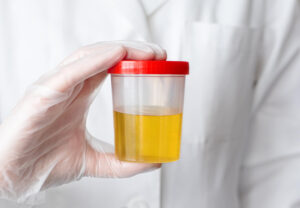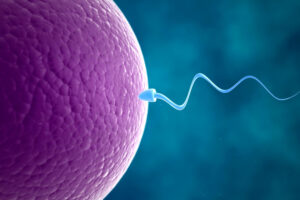It is a common misconception that the term “menstrual cycle” only refers to those days when a woman gets her period. Rather, the menstrual cycle consists of four phases, where all phases work in union to prepare your body for pregnancy. The menstrual cycle is a fundamental aspect of a woman’s reproductive health, affecting both her mind and body.
With about 450 periods in a lifetime, understanding this natural process is essential to managing your overall well-being, addressing potential issues, and appreciating its role in maintaining your overall health. This blog explores the menstrual cycle in detail, emphasizing its phases, significance, common menstrual problems and the importance of tracking your cycle to ensure optimal health.
What is a Menstrual Cycle?

Contrary to the common belief that the menstrual cycle only refers to the days of menstruation, it is a cyclical process involving four different phases such as:
- Menstruation
- Follicular phase
- Ovulation
- Luteal phase
These phases work together to prepare your body for pregnancy. If pregnancy doesn’t occur, the cycle resets with the shedding of the uterine lining, known as menstruation.
A menstrual cycle is measured from the first day of one period to the first day of the coming period. While the average cycle lasts 28 days, it can range between 21 and 35 days depending on the individual. The first period, known as menarche, typically occurs between ages 9 and 16, while the last period, or menopause, usually happens around the age of 51.
The Four Phases of the Menstrual Cycle

Phase 1: Menstrual Phase (Days 1–5)
The menstrual phase marks the beginning of the cycle, during which the uterus sheds its lining. This phase typically lasts 3–7 days, and the fluid expelled includes mucus, blood, and uterine lining cells.
Period cramps during this phase result from the contraction of the uterine walls which is a natural response to help expel the lining. While the fluid loss might seem significant, it is generally about 35 ml per cycle. Using sanitary pads, tampons, menstrual cups, or period underwear can help manage the flow, with regular changes being crucial for hygiene and comfort.
Phase 2: Follicular Phase (Days 1–13)
The follicular phase begins on the first day of menstruation and lasts until ovulation. During this time, the pituitary gland releases a hormone that stimulates the ovaries to produce follicles. Of these, one follicle matures into an egg. Simultaneously, the uterine lining thickens to prepare for a possible pregnancy.
This phase is marked by increased estrogen production, which supports follicle development. Around the time of ovulation, testosterone levels also rise, enhancing libido.
Phase 3: Ovulation Phase (Day 14)
Ovulation occurs when a mature egg is released from the ovary and travels towards the uterus through the fallopian tube. This phase lasts about 16–32 hours and typically occurs 14 days before the next period.
The egg survives for up to 24 hours, during which fertilization can occur if sperm is present. Ovulation is the most fertile period, and the chances of getting pregnant are highest during those five days leading up to ovulation and on the day itself.
Women may notice a slight cramp in the lower abdomen during ovulation. If fertilization occurs, the egg begins its journey toward the uterus for implantation. Otherwise, the egg disintegrates, and the cycle progresses to the next phase.
Phase 4: Luteal Phase (Days 15–28)
After ovulation, the corpus luteum—a group of cells in the ovary—produces progesterone and a small amount of estrogen. These hormones help maintain the thickened uterine lining for potential pregnancy.
If a fertilized egg implants in the uterus, the corpus luteum continues producing progesterone to sustain the pregnancy. If pregnancy doesn’t occur, the corpus luteum breaks down, hormone levels drop, and the uterine lining sheds, which marks the start of a new menstrual cycle.
What are Anovulatory Cycles?
In rare cases, ovulation doesn’t occur, resulting in an anovulatory cycle. These are common during the first 12–18 months after menarche and as women approach menopause. Without ovulation, the uterine lining still builds up and sheds, but the cycle may be irregular, and the flow inconsistent.
Importance of Tracking Your Menstrual Cycle
Tracking your menstrual cycle is a valuable tool for understanding your reproductive health and overall well-being. Here’s why you should consider tracking your menstrual cycle:
- Predict Your Periods: Knowing when to expect your period helps in planning and avoiding surprises.
- Understand Your Body: Changes in your cycle can indicate health issues, such as irregular or painful periods, that may sometimes require medical attention.
- Know Your Fertile Days: Tracking ovulation may help in family planning, whether you’re trying to conceive or avoid pregnancy.
- Manage PMS Symptoms: Anticipating mood swings, cramps, and other premenstrual symptoms allows for better self-care.
- Identify Patterns: Recognizing patterns in your cycle can help you optimize activities, exercise, and self-care routines.
Using a period–tracking app, calendar, or journal can empower you with knowledge about your body and health.
Common Menstrual Problems
Menstruation can sometimes be accompanied by issues that affect day-to-day life, including:
- Dysmenorrhea: Painful cramps during menstruation.
- Menorrhagia: Heavy or prolonged bleeding.
- Amenorrhea: The absence of periods, either due to primary causes (never starting) or secondary causes (stopping unexpectedly).
- PMS (Premenstrual Syndrome): Symptoms like mood swings, bloating, fluid retention and fatigue before periods.
Understanding these problems and seeking medical advice from experts and experienced doctors when necessary is crucial for maintaining a balanced health. If you are looking to make your pregnancy journey more informed and confident , our IVF Success Calculator can help. This tool helps estimate your likelihood of a successful pregnancy through IVF by considering factors like your age, health history, and lifestyle habits, providing you with a personalized success estimate.
Menstrual Cycle and Fertility

The menstrual cycle is central to fertility, as it prepares the body for pregnancy every month. Tracking ovulation, typically the midpoint of the cycle, is essential for identifying fertile windows. For those struggling with infertility, understanding the menstrual cycle provides critical insights for diagnosis and treatment.
Embracing “YOU”r Cycle
Every woman’s cycle is unique, and what’s normal for one might not be for another. Consulting a doctor for irregularities, pain, or other concerns ensures appropriate care and treatment. By understanding your menstrual cycle, you gain the power to take charge of your health. From managing PMS to planning pregnancy, the understanding of how your body works is important.
Each phase in the menstrual cycle plays an essential role in preparing your body for potential pregnancy, marking a delicate balance of hormones and physiological changes. While menstruation may bring discomfort, it is a powerful indicator that your body is functioning as it should.
Understanding and tracking your menstrual cycle is not just about dates; it’s a pathway to help you anticipate changes, identify irregularities, and address potential concerns like PCOD or hormonal imbalances. For many, it can also be a vital tool in family planning. If you’re navigating fertility challenges or simply seeking to optimize your reproductive health, expert care and guidance can make a world of difference.
At Boon IVF, we believe in holistic care that nurtures both body and mind. Whether you’re addressing fertility concerns, managing PCOD, or seeking guidance for reproductive health, our team of specialists is here to support you. We offer:
- Personalized IVF Treatment: Designed to suit your unique journey, with advanced techniques and tailored care.
- Food and Nutrition Counselling: Helping you make informed dietary choices that promote overall well-being and hormonal health.
- Fertility Yoga Sessions: Encouraging relaxation, improving blood flow, and balancing hormones naturally.
- Happy Sessions for Couples: Providing emotional support and strengthening your bond during what can often be a challenging time.
Taking charge of your menstrual and reproductive health is an empowering step. Whether your goal is to address health issues, plan to begin a family, or enhance your overall well-being, Boon IVF is here to guide you every step of the way.
To make your fertility journey more cognizant and certain, our Male Fertility Calculator and Female Fertility Calculator can be valuable tools. The Male Fertility Calculator helps estimate how lifestyle factors might affect sperm health and IVF success, while the Female Fertility Calculator provides an estimate of a woman’s potential success with IVF based on key factors like their age, weight, and smoking habits. These tools are a great starting point for exploring IVF, but remember, they are intended for informational purposes only. For personalized guidance and a deeper understanding of your fertility options, it’s essential to consult with a qualified healthcare provider, such as the Boon IVF’s fertility specialist or gynecologist.
Together, we can create a brighter, healthier future for you and your loved ones. Take the first step towards your empowered journey—connect with Boon IVF today!


